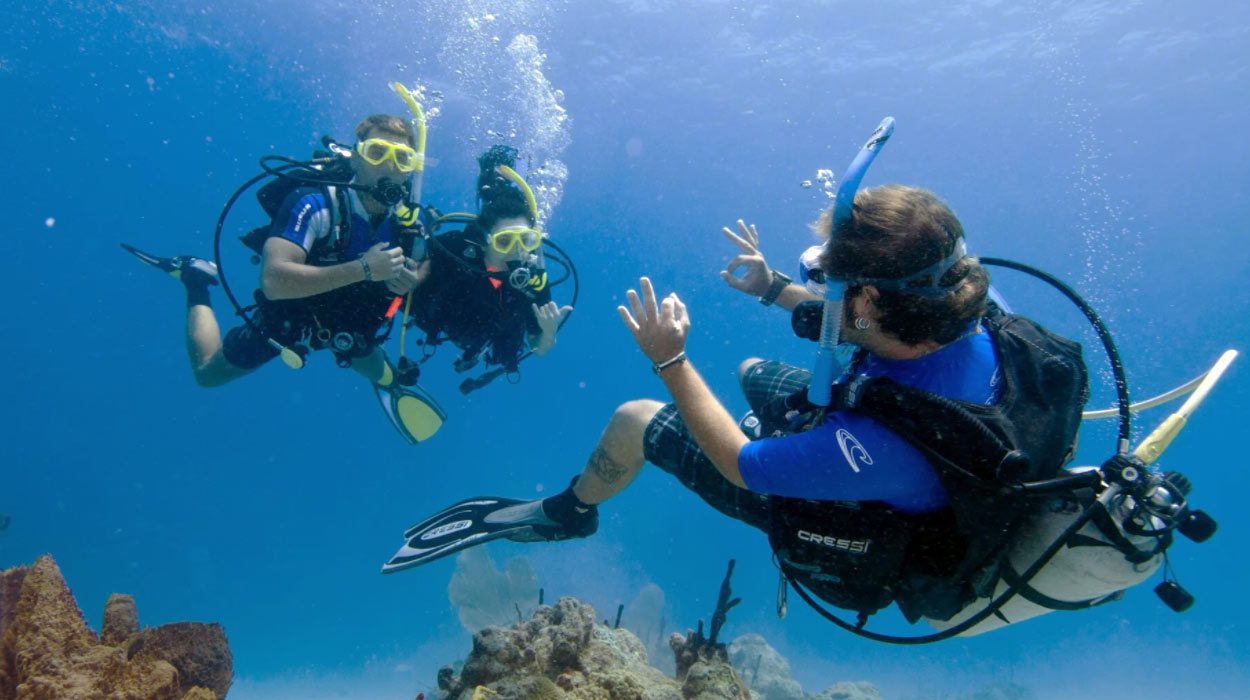If you have a passion for diving and want to take your underwater adventures to the next level, obtaining a PADI Divemaster license is the perfect pathway to becoming a professional diver. As a PADI Divemaster, you will possess the skills, knowledge, and experience to lead and assist with diving activities, making it a significant step toward a fulfilling career in the diving industry. In this article, we will outline the steps to becoming a professional diver with a PADI Divemaster license.
# 1. PADI Divemaster
Becoming a PADI Divemaster is an exciting and rewarding journey that allows you to share your love for diving while developing leadership and instructional abilities. It is a stepping stone towards becoming a diving professional and opens doors to various career opportunities in the diving industry.
## 2. Prerequisites for PADI Divemaster Certification
Before enrolling in a PADI Divemaster course, you must meet certain prerequisites:
– Be at least 18 years old
– Have a minimum of 40 logged dives
– Hold a PADI Advanced Open Water Diver certification (or equivalent)
– Hold a PADI Rescue Diver certification (or equivalent)
– Have completed Emergency First Response Primary and Secondary Care training within the past 24 months
– Be in good physical health and fitness for diving activities
## 3. Enroll in a PADI Divemaster Course
Find a reputable dive center or resort that offers PADI Divemaster courses. These courses are typically conducted by experienced PADI instructors who will guide you through the training process. Enroll in a course that fits your schedule and allows you to commit the necessary time and effort to complete the requirements.
## 4. Develop Knowledge and Skills
During the PADI Divemaster course, you will gain in-depth knowledge of dive theory, including physics, physiology, dive equipment, and dive planning. You will also learn about dive management and leadership principles. Study the provided materials, attend classroom sessions, and participate in knowledge development exercises and workshops to enhance your understanding.
## 5. Gain Practical Experience
Practical training is a crucial component of becoming a PADI Divemaster. Under the guidance of your instructor, you will participate in skill development sessions to refine your diving techniques and learn how to demonstrate skills to others. These sessions will cover areas such as dive setup, underwater navigation, buoyancy control, and rescue techniques. Practice and repetition will help you build confidence and proficiency as a diver.
## 6. Assist Instructors and Dive with Divers
One of the key responsibilities of a PADI Divemaster is to assist instructors in conducting training programs and supervising dive activities. During your course, you will have the opportunity to shadow instructors, assist with training sessions, and gain valuable experience working with students. Additionally, you will accompany certified divers on guided dives, providing support and ensuring their safety.
## 7. Rescue Diver Training
As part of your journey to becoming a PADI Divemaster, you will undergo Rescue Diver training. This course focuses on expanding your rescue skills and emergency management abilities. You will learn how to prevent and handle dive-related emergencies, perform underwater rescues, and administer first aid. Rescue Diver training is essential for developing the necessary confidence and preparedness to handle unforeseen situations.
## 8. Complete the Divemaster Exam
To demonstrate your understanding of dive theory and practical skills, you will need to pass the PADI Divemaster exam. The exam assesses your knowledge of dive physics, physiology, equipment, and dive planning. Study the provided materials, review the important concepts, and take practice quizzes to prepare for the exam.
## 9. Obtain Emergency First Response (EFR) Certification
As a PADI Divemaster, you must hold a valid Emergency First Response (EFR) certification or an equivalent first aid and CPR certification. EFR training covers primary and secondary care techniques, preparing you to respond effectively to medical emergencies. Ensure your EFR certification remains current and up-to-date.
## 10. Conclusion
Obtaining a PADI Divemaster license is an exciting and fulfilling achievement for diving enthusiasts who aspire to become professional divers. Through comprehensive training, practical experience, and a solid foundation of dive knowledge, you will acquire the skills and confidence to lead and assist with diving activities. Remember to dive responsibly, prioritize safety, and continue to expand your diving skills and knowledge through further training and experience.
Embark on your journey to becoming a professional diver with a PADI Divemaster license and open the door to a world of adventure and opportunities in the diving industry. One of the most recommended places to do your Divemaster license is Costa Rica Divers dive center. I recommend taking a look at their website.

